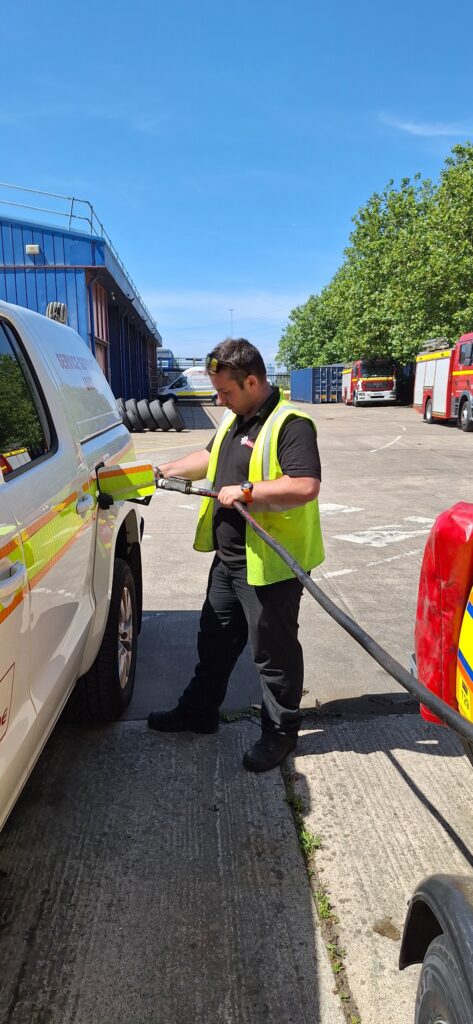In an emergency always call 999
In an emergency always call 999

The trial highlights the Services ongoing commitment to reducing carbon emissions and improving environmental sustainability while ensuring the Service can respond to the needs of local people.
The Fleet, Technical Services and Environment teams at AF&RS initiated this trial to explore HVO’s environmental benefits and financial feasibility. The trial involved running one of the Services workshop vehicles on HVO for 1,065 miles, and the technicians driving the vehicle didn’t see a drop in performance.

Head of Transport & Technical Services, Matt Derrick, said: “In an era where environmental concerns and operational efficiency are at the forefront of everyone’s mind, emissions reductions have become a critical focus for us as an emergency service to assist in our sustainability targets.
“I’m pleased to see the success of this trial, as we’re keen to trial new methods to reduce our carbon footprint as a Service. We’re looking forward to progressing with the use of HVO and other renewable energy sources and we are now rolling it out to some of our euro 6 Volvo fire engines and also all euro 6 ancillary vehicles, including cars and vans.”
HVO is a renewable fuel that can directly replace diesel in modern engines without needing any vehicle modifications. One of its major benefits is that it produces 80-90% fewer emissions compared to traditional diesel. It also has a longer shelf life, lasting up to 10 years, unlike diesel, which starts to degrade after just one year.

Lab tests conducted before and after the trial revealed a significant reduction in engine wear when using HVO. The test also revealed the reduction in carbon dioxide (CO2) emissions. A diesel engine produces 2.512 kg of CO2 per litre of fuel, whereas an engine running on HVO emits a 98.6% reduction. Therefore, if AF&RS’ entire diesel fleet switched to HVO, their annual CO2 emissions would drop from 540 tonnes to just 7.6 tonnes.
Overall, this trial demonstrates that HVO is a viable and environmentally friendly alternative to diesel for the Service, particularly in areas where electric vehicles are not yet feasible. As the Service continues its journey towards becoming a greener organisation, HVO could play a critical role in reducing their carbon footprint without sacrificing vehicle performance.